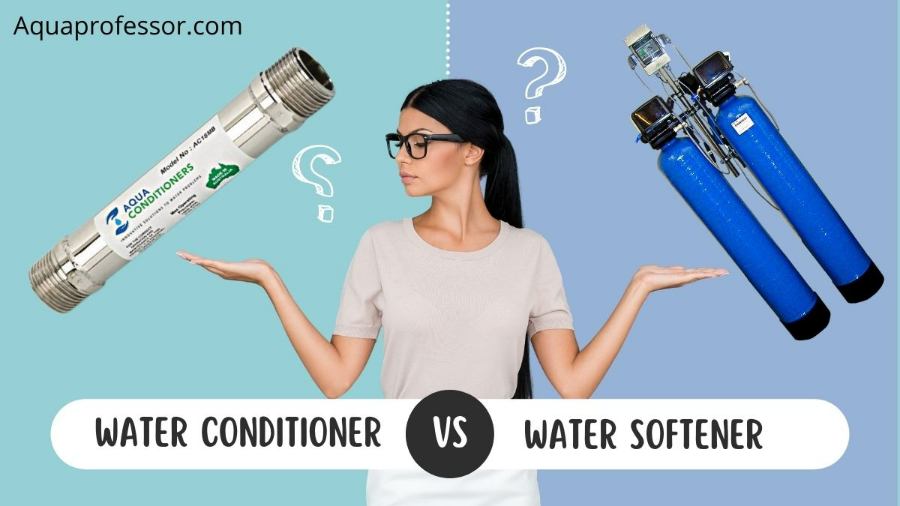
In this complete guide, I will dive deep into water conditioner vs water softener to help you with the hard water treatment of your household within budget.
The key difference between a water conditioner and a water softener is that water softeners give you a permanent solution to hard water exceeding 120 mg/L but don’t do much about the water quality. In contrast, a water conditioner can only treat temporary water hardness but gives better quality water.
In this article, you will find insightful knowledge about the working of both these types of water treatment methods and how the two are different, and after reading, you will be able to decide which one is better for you.
Difference Between Water Conditioner Vs Softener in a Nutshell
While you may use softeners and conditioners to treat hard water, they vary in their working, effects, costs, etc. They both have very different working principles and are used in different situations. While a water softener may suit one situation, a water conditioner may be your solution in another.
| Water Softener | Water Conditioner |
|---|---|
| Removes excess minerals like calcium and magnesium | Changes the chemistry of hardness particles, does not eliminate them |
| Reduces scale buildup | Reduces scale buildup |
| Reduces the need for soap or detergent | Removes chemical impurities like chlorine |
| Helps avoid dry skin | Less water wastage |
| Cannot remove harmful chemical impurities | Can only remove temporary hardness |
| Cannot remove bacterial contaminants | Cannot lower Total Dissolved Solids (TDS) in water |
| Does not make the water any healthier | Makes water healthier by removing chemical contaminants |
Also Read: 5 Top Waterdrop RO Filter Reviews
The Ultimate Showdown Between a Water Conditioner VS Water Softener!
To begin with, water softeners and water conditioners are both water treatment systems and are used to tackle the same issue: Water hardness.
So they both have similarities and differences. Let’s dive into both to learn about these two common methods for hard water treatment.
What Differentiates a Water Softener From a Water Conditioner?
Now, you must be thinking, if they’re both used for the same issue, why and how are they different? And when to use which one? Quite a few parameters make water softeners different from water conditioners.
1. Water Quality
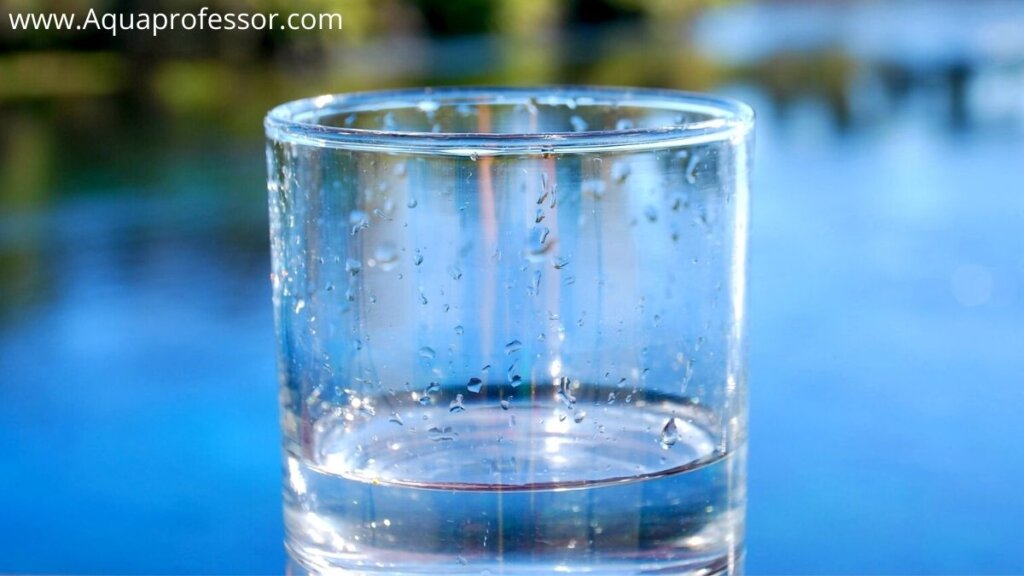
Water softeners exchange hard water ions; they do not affect water quality. On the other hand, water conditioners may also remove harmful contaminants from the water like chlorine, ultimately making it better in quality and safer to drink.
So, if you’re more concerned about water quality than hardness, you must go with a water conditioner. And if your main problem is water hardness and the quality of water bothers you less, you should get yourself a water softener.
Also Read: Filtersmart Water Conditioner Reviews In 2024
2. Costs and Maintenance
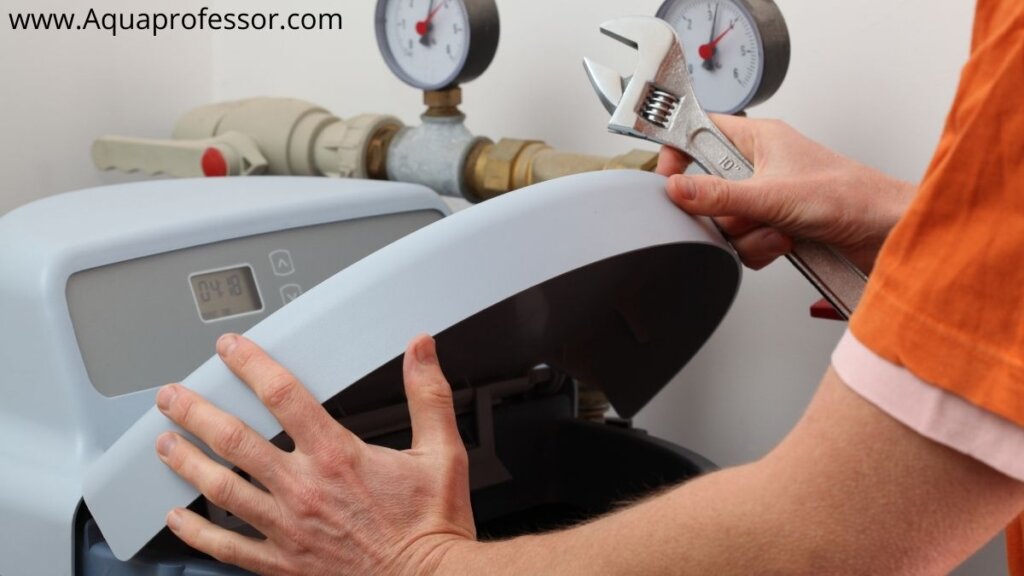
There isn’t much of a maintenance cost involved in a water conditioner. You may need to change the filter maybe once a year, but that’s all.
Water softeners work on the ion exchange principle, as mentioned earlier.
If you own a water softener, you will probably need to regularly add bags of salt to it, to keep it functioning. The softeners are also known for a great deal of water wastage, so they may even add to your water bills. So, water softeners can be a bit high maintenance than water conditioners.
3. Price
While you may find water softeners and conditioners ranging in every price range, a typical water conditioner may cost you a few tens or dozen bucks (depending on the type of water conditioner bought), but a water softener costs may range between a few hundred bucks.
Clearly, in the price race, water conditioners are in the lead.
What Makes Them Alike?
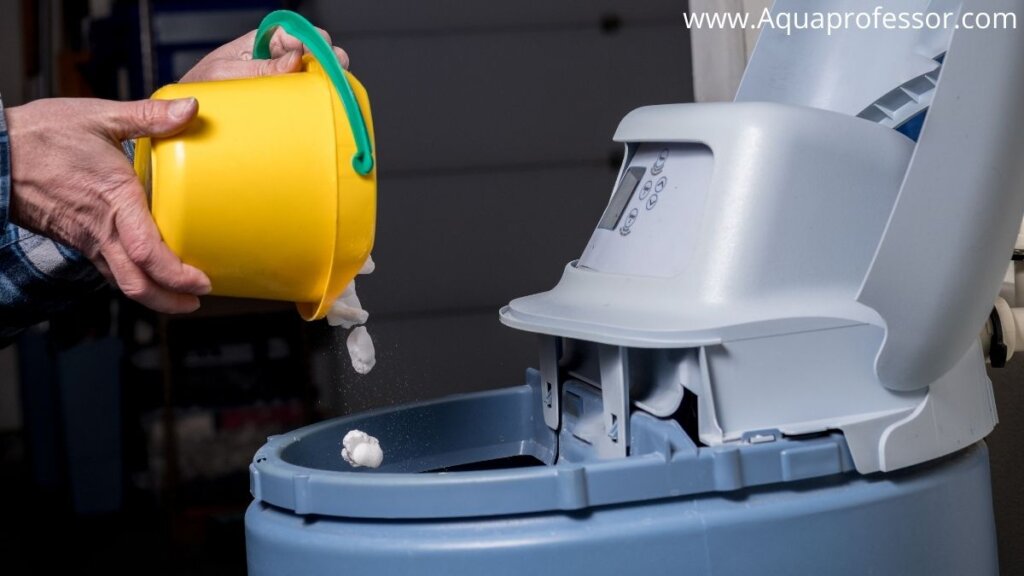
The common ground between a salt-based water softener and a water conditioner is that they both are used to treat hard water.
They both cause different sorts of catalytic reactions which cause softening of hard water. If you’re troubled by hard water and looking for solutions to overcome the issue, you may turn to either of the methods.
Hard water is just water with a higher content of mineral ions like calcium and magnesium.
This is why water must go through many stages of treatment before you use it for consumption. You can use both water softening systems and water conditioners to help deal with the problem.
They both are effective in hard water treatment. But keep in mind that it depends significantly on the amount of hardness in water. While a water conditioner may be able to fix hard water temporarily, it may not provide you with a permanent solution.
If your water hardness problem isn’t that bad, you can rely on it. You need water softeners only if your hard water has gotten out of hand. They effectively and permanently fix all your hard water problems.
How Does a Water Softener Work?
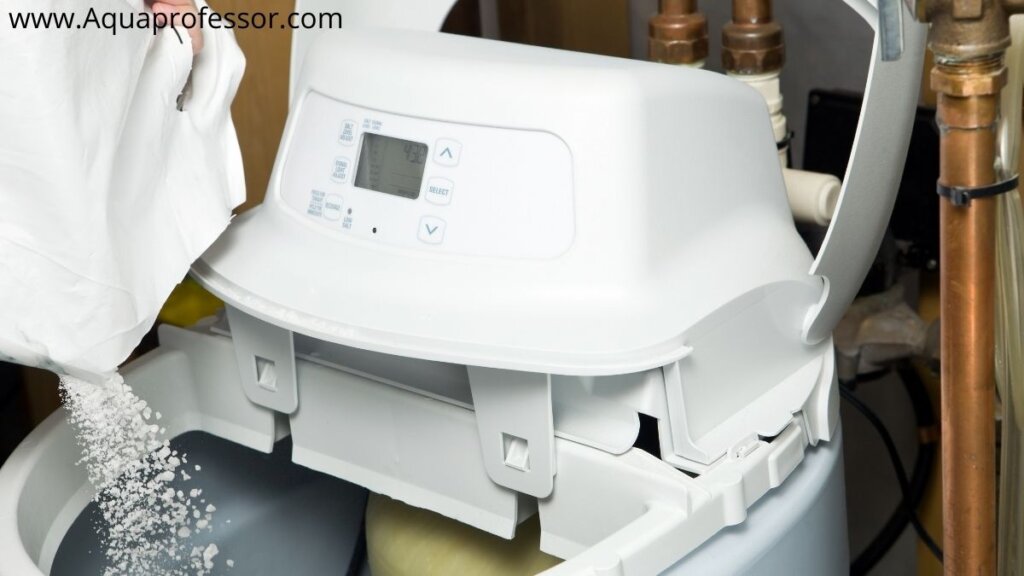
Water softeners, also called salt-based softeners, use the ion exchange method. Hard water typically has a high concentration of hard water mineral ions like calcium and magnesium. There is an exchange of ions with salt like sodium chloride (that has sodium ions).
This ion exchange takes place in a small tank full of tiny polyester beads called resin beads present in the resin tank. These beads carry sodium. The beads have a negative charge which helps bind with the sodium ions that carry a positive charge.
As hard water flows, the much stronger positively charged ions of calcium and magnesium minerals displace the sodium and take their place on the resin beads.
You may now wonder about the need for salt if all the work is done with the plastic beads. The answer is regeneration. After a certain time, the beads get exhausted and can no longer soften water. At this point comes the need for regeneration.
The Process of Regeneration!
The regeneration process is done with a solution of water and salt or sodium chloride. In the regeneration cycle, the sodium in brine solution from the brine tank causes calcium and magnesium ions to be replaced on the beads on the resin bed. They are then recharged with more sodium ions for the further ion exchange process.
Also Read: 5 Simple Ways To Discharge Water Softener Backwash
The water softeners’ added salt content in the water has led to some controversy. Some say the added salt content causes an increase in sodium level in the water and becomes harmful to health and is dangerous.
In reality, the salt content added by the water softeners is much less and does not cause any significant harm. The bad popularity led to the introduction of supposedly “salt-free” water softeners.
But don’t be blinded by the tag; there is no such thing as a salt-free water softener; they are just water conditioners instead. Water softeners can not work without salt. While water conditioners are useful in their way, they are inadequate for treating hard water.
So next time you come across an ad for a salt-free water softener, don’t be misled into buying a water conditioner. Remember, a good water softener can only do the job of softening water effectively. If you’re facing serious hard water troubles, waster softeners should be your pick for the type of water treatment.
How Does a Water Conditioner Work?
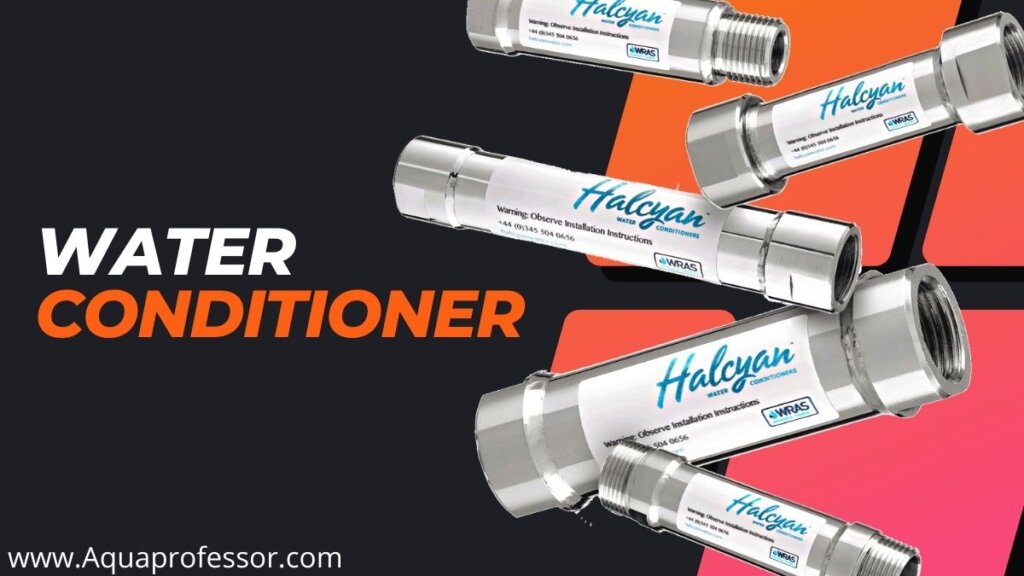
Scale build-up is the attachment of ions like calcium and magnesium to the pipelines, faucets, and other water fixtures. Scales are damaging and detrimental to your plumbing fixtures and are one of the most common issues people with hard water face.
They ruin appliances like coffee makers, water heaters, laundry machines, etc. They may lower the incoming water pressure and, in some cases, might even restrict the entire water flow. The damage to hot water appliances is even more troubling as hot water increases the scale formation rate.
You can easily tackle the problem of scale by using water conditioners. Water conditioners greatly help reduce the formation of scales and prevent all the damage and trouble they bring.
A water conditioner, or salt-free water conditioner, works on the principle of template-assisted crystallization or TAC. Water conditioners have specialized in TAC media.
These TAC media have tiny nucleation sites and polymer beads covered in craters. These nucleation sites act as templates; when hard water passes through the mineral tank in the water conditioner, the nucleation sites pick up the calcium and magnesium ions.
Working of Water Conditioners
As the ions keep building up, they form microcrystals. These crystals then break off and are released. The formation of these crystals prevents them from sticking to pipelines and faucets, etc. This is because these microcrystals are stable and retain their structure while flowing through your plumbing system.
There are many types of water conditioners available on the market which you can get to solve your water issues, like:
Also Read: Water Softener VS Water Filter
Which One to Choose? A Water Softener or Water Conditioner?
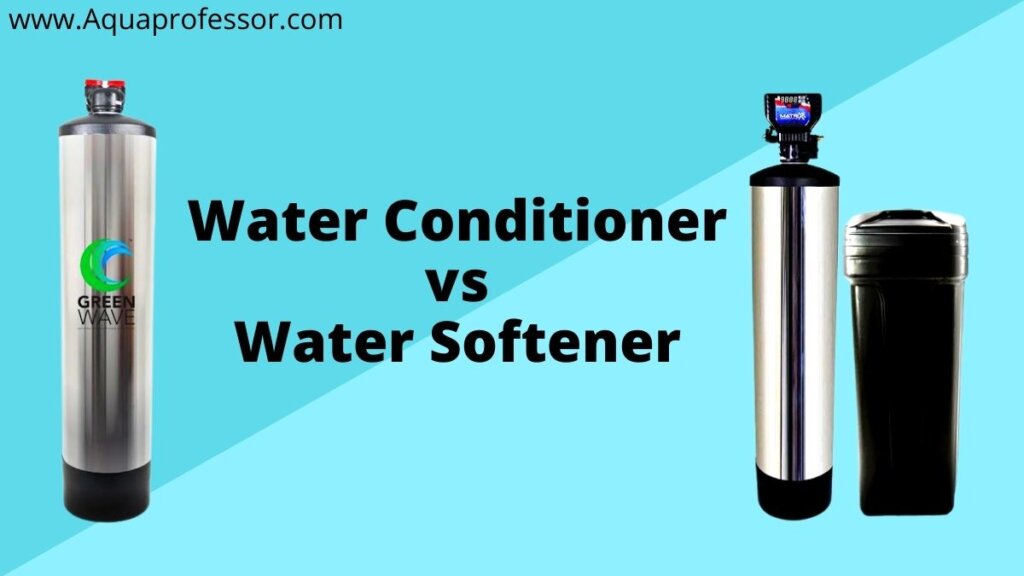
Honestly, choosing between a water softener and a water conditioner can be tricky, and it mostly depends on the type of issue at your water source, other water problems, and needs.
A water conditioner does not produce softened water. Water conditioning just neutralizes it enough so that water becomes somewhat desirable to use and consume.
If your main problem is just the scaling and you have a low content of hard water (i.e. the ions concentration falls in the healthy mineral range), water conditioners should be your choice of water treatment option.
A water softener, on the other hand,
But remember that water softeners can be somewhat costly, requiring good care and maintenance. If you face a high concentration of hard water and are looking for a permanent water treatment solution, get yourself a water softener today and enjoy better softer water.
So, if your water hardness levels aren’t that high, and you’re looking for a less costly, low-maintenance option, water conditioners should be your call. And if you need a permanent solution to hard water problems, go with water softeners.
Water Conditioner VS Water Softener FAQs
Is a salt-free water softener the same as a water conditioner?
There exists no such thing as a salt-free water softener. You can not soften water without sodium. So the supposed salt-free water softeners are just water conditioners that alter the mineral quality of water. So yeah, they’re both the same.
What Is The Ideal Water Hardness Level?
The ideal hardness level in water is somewhere between 60 mg/L to 120 mg/L or 0-3 grains per gallon. Make sure you don’t consume water with a hardness level beyond 170 mg/L.
What Are The Different Ways To Treat Hard Water?
The most common way to treat hard water is to use a water softener. It is the best way to solve your hard water problems. Some alternatives and temporary fixes could be using water conditioners, adding washing soda during laundry, boiling temporary hard water, etc.
What is the difference between a water filter and a water softener?
Water softeners are usually very problem-specific; they only treat hard water. On the other hand, water filters work on a much wider range of contaminants. They are useful in treating water with impurities from sources like municipal or city water.
What is the difference between a water softener and a water refiner?
Water refiners help remove chemicals and other impurities from water, but you cannot use them to remove hardness minerals from water. Water softeners differ from water refiners as they can successfully remove organic compounds and mineral impurities from water and help treat water hardness.
Adarsh is a Health & Nutrition Sciences graduate with expertise in environmental health. He is associated with ventures like Glacier Fresh Filter and Simpure Filter Systems. Through Aqua Professor, he intends to provide helpful information to every home to help them make smarter decisions.
